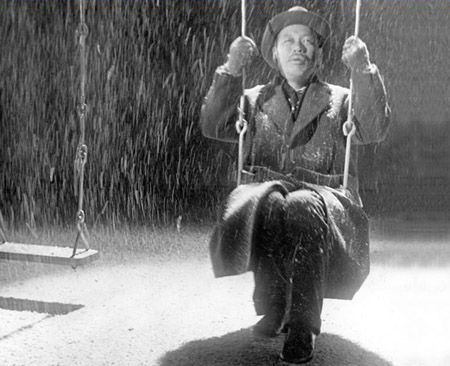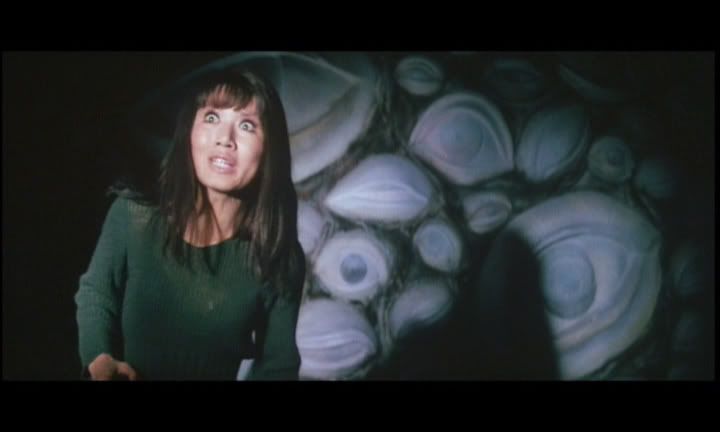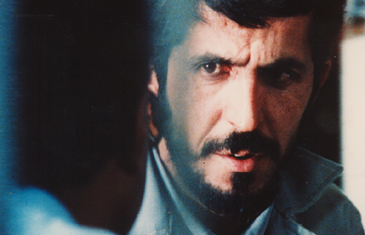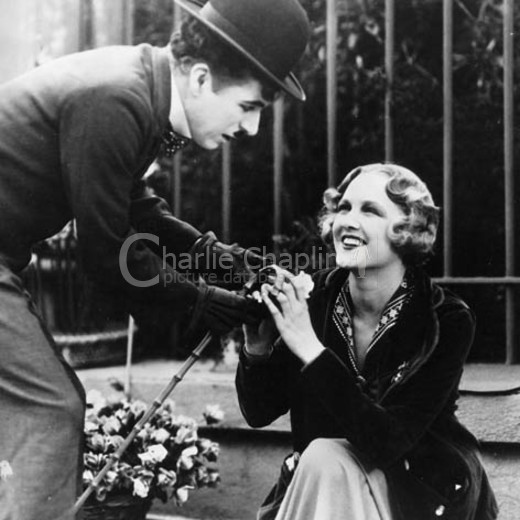 Made during the Nazi occupation of his native Denmark, Dreyer's film uses the concept of persecution and witch-hunting during the 17th century as an allegory for the situation his country found itself in at the time the film was made. Who knows whether the Nazis were aware of Dreyer's intentions; you'd think the production would have been closed down if it was that obvious, but such is Dreyer's subtlety that perhaps those for whom the film was an attack upon failed to notice the point. Set around 1623, where a strict Lutheran orthodoxy led to the persecution of Catholics and other non-Lutherans in Denmark, Dreyer shows a community that is paranoid and distrustful of others, always quick to point the finger and accuse those who act outside of the norm as witches - a crime of course punishable by torture and death.
Made during the Nazi occupation of his native Denmark, Dreyer's film uses the concept of persecution and witch-hunting during the 17th century as an allegory for the situation his country found itself in at the time the film was made. Who knows whether the Nazis were aware of Dreyer's intentions; you'd think the production would have been closed down if it was that obvious, but such is Dreyer's subtlety that perhaps those for whom the film was an attack upon failed to notice the point. Set around 1623, where a strict Lutheran orthodoxy led to the persecution of Catholics and other non-Lutherans in Denmark, Dreyer shows a community that is paranoid and distrustful of others, always quick to point the finger and accuse those who act outside of the norm as witches - a crime of course punishable by torture and death.An elderly woman is accused of being a witch, a crime she vehemently denies. In what is assumed to be a reference to the Nazis, brutal methods are used against suspected criminals; in order to force a confession, torture is used, and even this isn't enough - the authorities want the woman to denounce others. Of course, she knows of one witch and the confession of which would cause shock waves throughout the pious community. An elderly pastor, Absolon (Thorkild Roose) has recently taken a young second wife, Anne (Lisbeth Movin), much to the disapproval of his mother (Sigrid Neiiendam), and it was suspected that Anne's mother was a witch, only saved from the flames by Absolon's testimony, though one suspects whether she was saved solely to win Anne's heart. Therein lies at heart the hypocrisy of the community, where the power that resides in a small religious few can be manipulated and exploited for cynical purposes.
When Martin (Preben Lerdorff Rye), Absolon's son from his first marriage returns to his family home, the focus shifts from interrogating suspected witches to the actual existence of a witch in the community. Martin and Anne begin to fall in love, their idyllic happiness at their love blossoming (shown in rural scenes of walks and boat journeys) contrasting sharply with the world of paranoia and persecution that Absolon inhabits. Martin is more sombre and distant by his betrayal, acknowledging his sin, but the affair makes Anne more assertive. Even Absolon and his mother notice the change. Note how she wears her hair loose now, opposed to tied back in an austere fashion. Such is Anne's desire to be with Martin that she wishes her husband dead, a wish that indeed comes to pass. Whether this is an absolute statement on Anne's power or whether it's ambivalent due to his age, it's a statement later used against her when Anne is accused, like her mother, of witchcraft.
Dreyer uses the concept of religious dogma run amok to create a haunting and atmospheric world, filmed where those with power can manipulate and persecute others for their own ends. The obvious reference to the Nazi occupation of Denmark has subsequently been made – little wonder therefore that Dreyer fled to Sweden not long after the film was made. Much like in Dreyer's 'The Passion of Joan of Arc', Dreyer has a trademark of close ups on faces to show anguish and emotion - just watch how close he gets to the elderly lady denounced as a witch during her suffering, as well as Anne's face during her growing love for Martin. Dreyer learned his trade during the years of silent cinema when an actor's face could convey just as much as dialogue, so it's no surprise that he uses this form of expression so convincingly. The film's climax is as ambiguous as much of what we've seen before - whether Anne is a witch or not, despite her confessions is probably open to debate, but this shouldn't distract us from Dreyer's true aim perhaps - depicting an austere world of terror and fear. 4.5/5
Dreyer uses the concept of religious dogma run amok to create a haunting and atmospheric world, filmed where those with power can manipulate and persecute others for their own ends. The obvious reference to the Nazi occupation of Denmark has subsequently been made – little wonder therefore that Dreyer fled to Sweden not long after the film was made. Much like in Dreyer's 'The Passion of Joan of Arc', Dreyer has a trademark of close ups on faces to show anguish and emotion - just watch how close he gets to the elderly lady denounced as a witch during her suffering, as well as Anne's face during her growing love for Martin. Dreyer learned his trade during the years of silent cinema when an actor's face could convey just as much as dialogue, so it's no surprise that he uses this form of expression so convincingly. The film's climax is as ambiguous as much of what we've seen before - whether Anne is a witch or not, despite her confessions is probably open to debate, but this shouldn't distract us from Dreyer's true aim perhaps - depicting an austere world of terror and fear. 4.5/5








